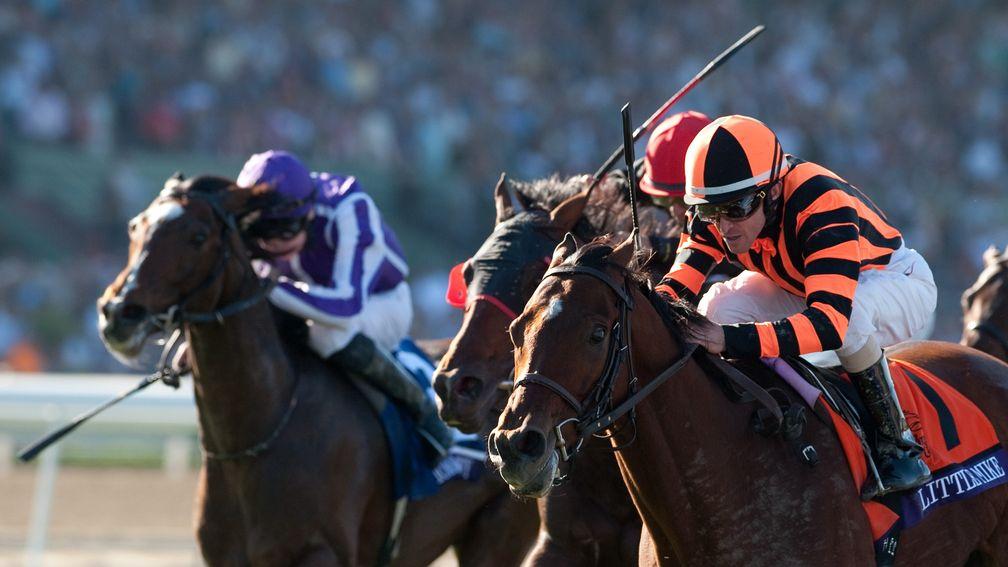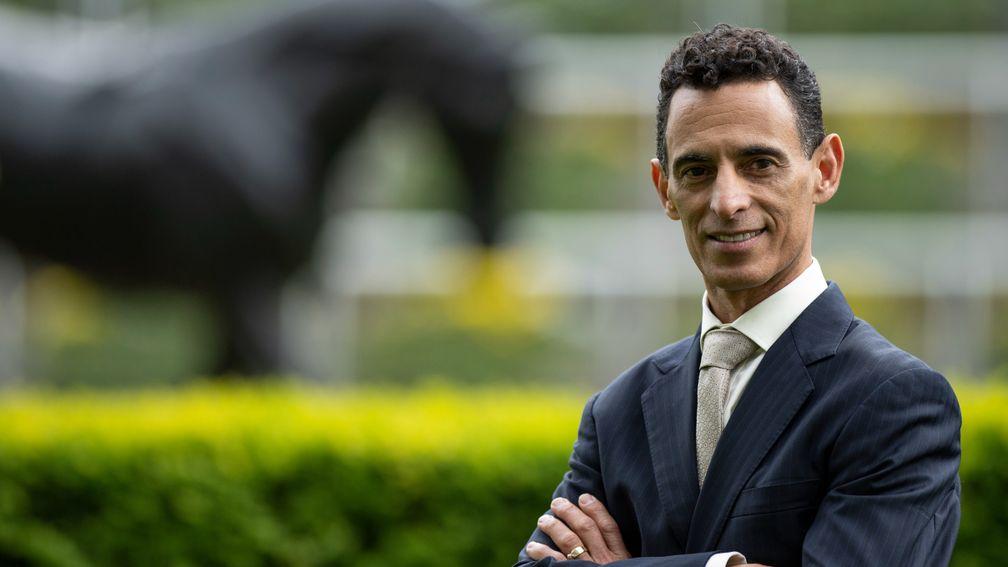'We've seen a meaningful improvement' - US officials laud new whip rules success

New rules and penalties which impose uniform limits on use of the whip, giving stewards the power to withhold prize-money from both jockeys and owners, have had significant success in the three months since their introduction in the US.
That is according to Lisa Lazarus, chief executive of the Horseracing Integrity and Safety Authority (Hisa), who was among speakers at the 56th International Federation of Horseracing Authorities conference in Paris this week.
She appeared alongside the American Jockey Club's Stuart Janney III, who reflected on the long road to making the Horseracing Integrity and Safety Act law through an act of the US Congress.
Despite several legal challenges, Hisa expects to introduce and enforce a national policy on medication and drug testing in January 2023.
It will mean a more unified approach to equine welfare and disciplinary procedures, which came into force on July 1 this year under the guise of its racetrack safety committee.

"The rules have now been in effect for three months and we're seeing a meaningful improvement in equine welfare, especially in those states and regions that have historically underinvested in equine safety," said Lazarus, who previously worked for the International Federation for Equestrian Sports (FEI), the world governing body of equestrian sports.
Lazarus took the new rules and punishments regarding the whip as a powerful example of the measurable difference that Hisa was having on the sport after just three months.
Describing the genesis of the six-strike rule as "the most heavily-debated rule" written by the racetrack safety committee, Lazarus acknowledged the key insight delivered by Hall of Fame jockey John Velazquez.
The rule requires a jockey to allow a horse two strides to respond after every second strike, and a minor or class three violation – that is up to three strikes over the limit – is treated in the conventional way, with a fine and a suspension typically starting at one day.
But for class two (four to nine strikes over) and class one (ten or more strikes over) violation, the percentage of the jockey's earnings goes up to 20 and 30 per cent, while the owner's purse is withheld.
"What is interesting about the rule, and represents a new direction for the US, is that for a class two violation, you actually get into disqualification of the purse," said Lazarus.
"It's important to distinguish that with the Hisa rule, that does not affect the parimutuel or the betting public. It is only with respect to the purse itself."
Since the introduction of the rule there have been 325 violations in the first three months, with only 29, or nine per cent, involved withholding purse-money.

Defending the impact the rule has on owners in addition to jockeys, Lazarus drew a comparison with anti-doping sanctions.
"Our world – the racing public and our global partners in racing – has come to accept that if a horse tests positive for a prohibitive substance, there will be the disqualification from purse earnings," said Lazarus.
"In that situation I think it's analogous to what role an owner might play. Owners are typically not involved in medication control, they're typically not involved in the veterinary treatment, and similarly they don't necessarily play a role in whatever mistake or intentional cheating took place.
"But there is a consequence and that consequence, in my experience, has an impact on the risk that trainers and veterinarians are going to take when it comes to medication control of horses."
Hisa has monitored the potential effects of the whip clampdown on the betting public and the quality of racing.
In comparing the average odds per finishing position in the three months the rule has been operational, Hisa found no discernible difference compared with the same three months in 2021, a finding Lazarus took to mean that the public was not finding races harder to decipher.
Similarly, the average winning times of races over all distances was broadly in line with those recorded last year, suggesting the reduced use of the whip was not making the sport less competitive.

The world's number 1 horse racing app just got better! Download the brand new Racing Post app for free to experience our new game-changing odds comparison, exclusive daily big-name tipping and unrivalled app-only content. Click here to download the latest version.
Published on inInternational
Last updated
- Skyscraper betting and soaring turnover: Japan's mind-boggling racing experience and the unlikely hero who sparked the boom
- Oisin Murphy a man in demand as revitalised Summer Cup card gives South African racing a platform to build on
- Ben Cecil, Grade 1-winning trainer and nephew of Sir Henry, dies aged 56
- Oisin Murphy: 'Billy Loughnane is the most talented rider I have ever seen at his age'
- Turffontein Summer Cup: Oisin Murphy up against Michael Roberts-trained ace See It Again on first ride in South Africa
- Skyscraper betting and soaring turnover: Japan's mind-boggling racing experience and the unlikely hero who sparked the boom
- Oisin Murphy a man in demand as revitalised Summer Cup card gives South African racing a platform to build on
- Ben Cecil, Grade 1-winning trainer and nephew of Sir Henry, dies aged 56
- Oisin Murphy: 'Billy Loughnane is the most talented rider I have ever seen at his age'
- Turffontein Summer Cup: Oisin Murphy up against Michael Roberts-trained ace See It Again on first ride in South Africa